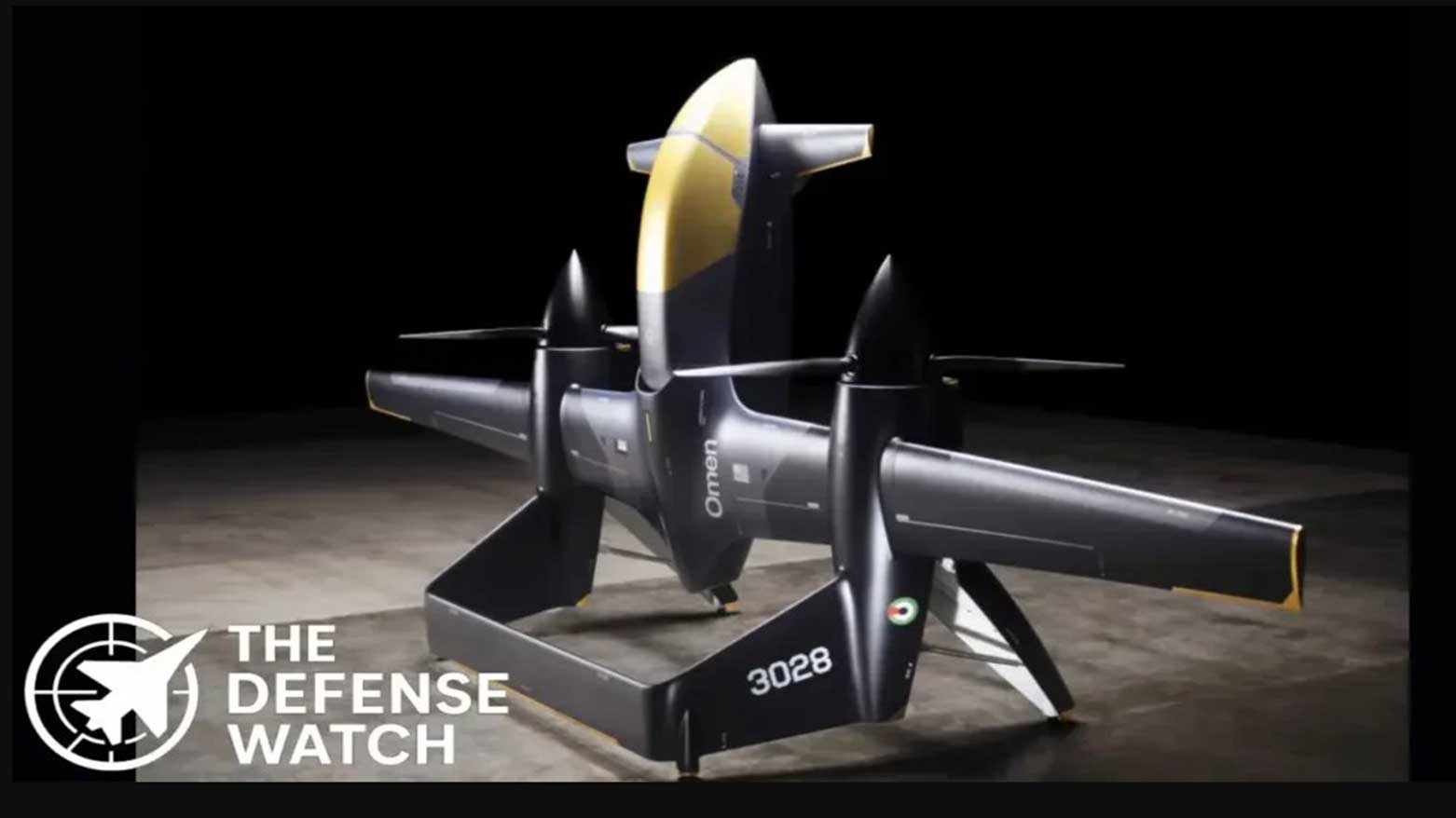U.S. and UAE Launch AI Drone Venture in Abu Dhabi, Expanding Strategic Defense Partnership
The Anduril–EDGE collaboration marks a new phase in U.S.–UAE defense and technology ties, reinforcing Washington’s broader regional strategy and Abu Dhabi’s ambition to become a global hub for advanced defense innovation.

ERBIL (Kurdistan24) — A U.S. high-tech defense firm, Anduril Industries, will partner with the United Arab Emirates’ state-owned EDGE Group to design and produce AI-powered autonomous drones under a landmark joint venture, both parties announced Thursday.
The deal marks one of the most significant expansions of U.S.–UAE defense cooperation in recent years, amid Washington’s growing emphasis on technology-driven security partnerships in the Middle East.
The two companies will jointly develop a new model, the Omen drone, at a 50,000-square-foot research facility in Abu Dhabi, according to a joint statement.
The UAE has already committed to acquiring the first 50 units, with the drones expected to enter production by the end of 2028.
Capable of both vertical takeoff and long-range flight, the Omen drone merges helicopter flexibility with aircraft endurance, making it deployable in combat zones, maritime patrols, and disaster operations.
“This is about disrupting current maritime patrol and special mission aircraft — much bigger systems. That’s what we’re going after,” said Anduril’s Senior Vice President Shane Arnott during a media call.
The EDGE–Anduril joint venture also gives the Emirati company access to Anduril’s Lattice AI system, an advanced battlefield coordination platform enabling multiple drones to operate autonomously in synchronized missions — described as a “3D command and control center.”
Expanding U.S.–UAE Defense Cooperation
The new drone initiative follows a string of major U.S. defense agreements with the UAE under President Donald Trump’s administration, reflecting a strategic pivot toward AI and autonomous systems.
During Trump’s visit to Abu Dhabi in May, the two countries signed a Letter of Intent for a “Major Defense Partnership,” outlining joint capability development and a roadmap for deepened military cooperation.
The agreement was accompanied by a $1.4 billion U.S. arms package, including six CH-47F Chinook helicopters and additional components for the UAE’s F-16 fleet. U.S.
Secretary of War Pete Hegseth and UAE Minister of Defense Mohammed Mubarak Al Mazrouei formalized the pact during a ceremony in Abu Dhabi, emphasizing a shared goal of innovation and interoperability.
A subsequent Memorandum of Understanding between the Pentagon’s Defense Innovation Unit (DIU) and the UAE’s Tawazun Council reinforced that commitment, aiming to accelerate collaboration in defense technology, artificial intelligence, and unmanned systems.
The Pentagon described the initiative as a model for “mission-driven collaboration among allies and partners relying on shared technological ecosystems.”
A New Phase in Defense Innovation and Regional Implications
The Omen drone venture symbolizes not only a new industrial chapter for the UAE but also the deepening technological and military convergence between Washington and Abu Dhabi.
By investing nearly $200 million in Omen and securing access to U.S. defense AI systems, the UAE strengthens its ambitions to become a global leader in autonomous defense manufacturing, while the U.S. consolidates a reliable ally at the intersection of the Gulf’s security architecture.
War experts see the deal as a continuation of Trump’s broader Middle East realignment — one that emphasizes technology partnerships and direct U.S.–Arab defense integration over traditional military aid.
The U.S. is pursuing AI infrastructure projects in Abu Dhabi, including the planned construction of the largest AI data center outside the United States.
Anduril’s founder, Palmer Luckey, known for creating the Oculus VR headset and his close association with tech investor Peter Thiel, described the Omen venture as a “cornerstone of a new generation of U.S.–allied defense innovation.”
Luckey’s company has been instrumental in deploying autonomous border surveillance towers across the U.S.–Mexico frontier, reflecting its dual focus on security and artificial intelligence.
The Omen drone, designed to carry various payloads — including torpedoes — represents a transformational step toward AI-driven military operations, according to defense experts.
By integrating U.S. innovation with Emirati industrial capacity, the project reinforces the Trump administration’s strategy of building a self-reliant network of regional partners capable of addressing security challenges without full-scale U.S. intervention.
As the world watches the U.S.–UAE defense axis evolve, the Omen project stands as both a technological milestone and a symbol of shifting geopolitical realities in the Middle East — where military power, economic vision, and artificial intelligence are now tightly intertwined.